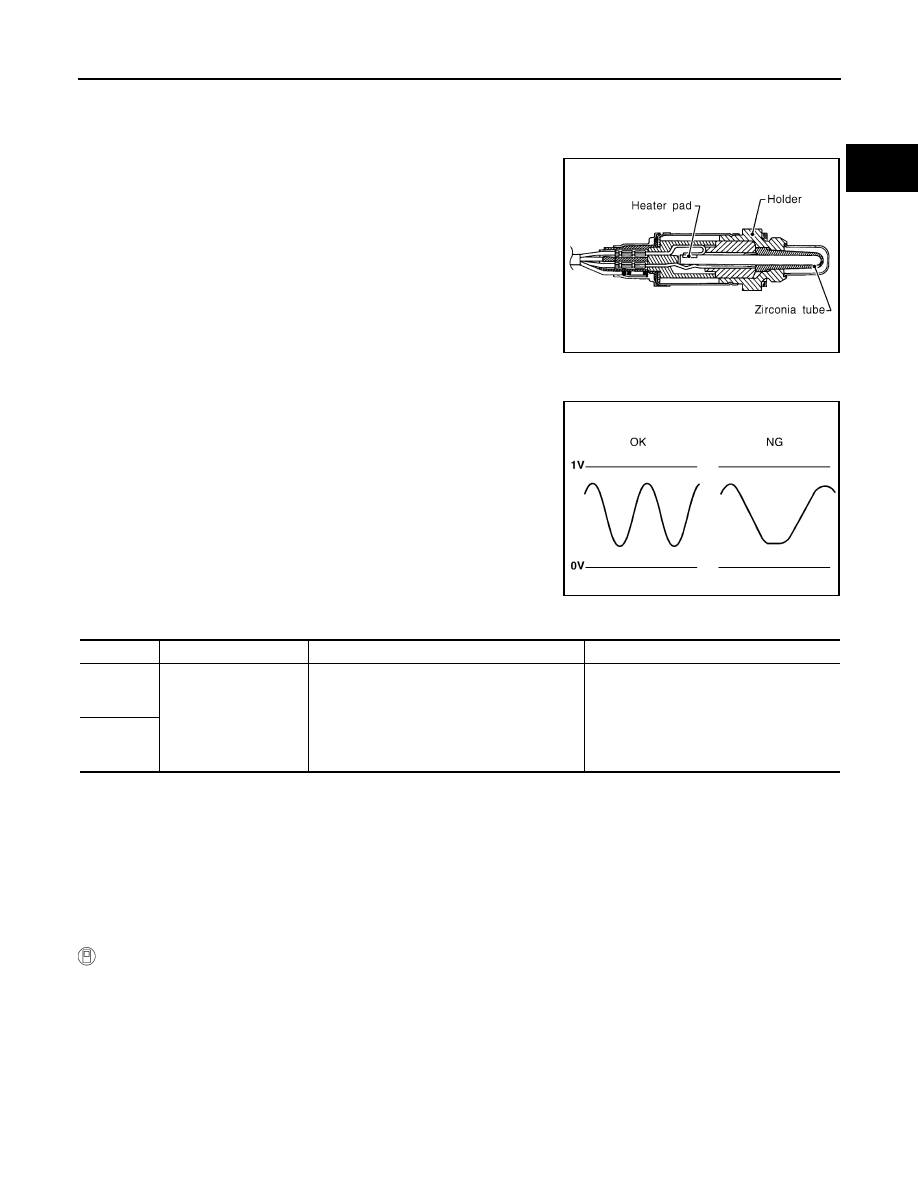Nissan Pathfinder (2008 year). Manual - part 257

P0139, P0159 HO2S2
EC-173
< COMPONENT DIAGNOSIS >
[VQ40DE]
C
D
E
F
G
H
I
J
K
L
M
A
EC
N
P
O
P0139, P0159 HO2S2
Component Description
INFOID:0000000001375904
The heated oxygen sensor 2, after three way catalyst (manifold),
monitors the oxygen level in the exhaust gas on each bank.
Even if switching characteristics of the air fuel ratio (A/F) sensor 1
are shifted, the air-fuel ratio is controlled to stoichiometric, by the sig-
nal from the heated oxygen sensor 2.
This sensor is made of ceramic zirconia. The zirconia generates volt-
age from approximately 1V in richer conditions to 0V in leaner condi-
tions.
Under normal conditions the heated oxygen sensor 2 is not used for
engine control operation.
On Board Diagnosis Logic
INFOID:0000000001375906
The heated oxygen sensor 2 has a much longer switching time
between rich and lean than the air fuel ratio (A/F) sensor 1. The oxy-
gen storage capacity before the three way catalyst (manifold) causes
the longer switching time. To judge the malfunctions of heated oxy-
gen sensor 2, ECM monitors whether the switching response of the
sensor's voltage is faster than specified during the various driving
condition such as fuel-cut.
DTC Confirmation Procedure
INFOID:0000000001375907
NOTE:
If DTC Confirmation Procedure has been previously conducted, always perform the following before conduct-
ing the next step.
1.
Turn ignition switch OFF and wait at least 10 seconds.
2.
Turn ignition switch ON.
3.
Turn ignition switch OFF and wait at least 10 seconds.
WITH CONSULT-III
TESTING CONDITION:
For better results, perform DTC WORK SUPPORT at a temperature of 0 to 30
°
C (32 to 86
°
F).
1.
Turn ignition switch ON and select “DATA MONITOR” mode with CONSULT-III.
2.
Start engine and warm it up to the normal operating temperature.
3.
Turn ignition switch OFF and wait at least 10 seconds.
4.
Turn ignition switch ON.
5.
Turn ignition switch OFF and wait at least 10 seconds.
6.
Start engine and keep the engine speed between 3,500 and 4,000 rpm for at least 1 minute under no load.
SEF327R
SEF302U
DTC No.
Trouble diagnosis name
DTC detecting condition
Possible cause
P0139
0139
(Bank 1)
Heated oxygen sensor 2
circuit slow response
It takes more time for the sensor to respond be-
tween rich and lean than the specified time.
• Harness or connectors
(The sensor circuit is open or shorted)
• Heated oxygen sensor 2
• Fuel pressure
• Fuel injector
• Intake air leaks
P0159
0159
(Bank 2)